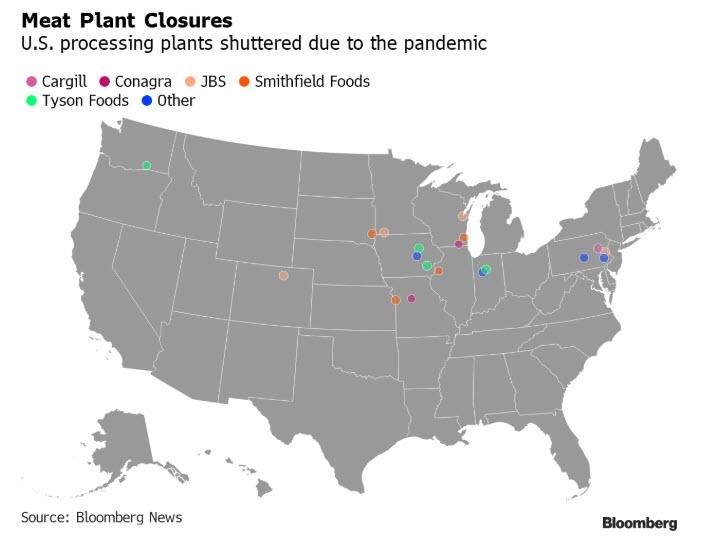America’s meat processing crisis, mainly triggered by labor shortages and plant closings due to coronavirus spread, is set to unleash a new wave of automation across plants to ease labor and health woes.
Bloomberg Law reports JBS SA, the world’s largest meat producer, is preparing to install robots in slaughterhouses to mitigate the spread of COVID-19 among human employees working on the production line.
JBS SA CFO Guilherme Cavalcanti recently said the Brazilian processing company expects to expand automation at its facilities across the world.
Cavalcanti said the adoption of automation started before the pandemic as labor tightened at US plants due to a decline in immigration sparked by the Trump administration. He said labor shortages have developed in the US as the virus infects workers and shutters plants.
Watch this video of meatpacking robots already in a JBS SA plant:
The fast-spreading virus has so far infected 4,900 workers (across the entire industry) and left 20 dead at 115 meatpacking plants across 19 states, according to CDC data from April 9-27.
In a JBS SA webinar on how it has handled its pandemic response, Cavalcanti said automation is more important than ever considering labor and health issues.
JBS SA has closed two US meatpacking plants due to the virus outbreak. There have been at least 22 plant closings in the US. We’ve noted, the closures have resulted in a 25% reduction in pork-processing capacity and beef by 10%. This has crushed farmers with overcapacity as they have limited options in selling livestock, resulting in mass cullings and plunging livestock spot prices. As for the consumer, soaring food inflation and shortages have been the result of plants reducing output or closing.
And at Zero Hedge, we have not been shy at telling you how things might pan out when it comes to a nation that is becoming automated, which means millions of jobs will be eliminated entirely by 2030. And, for some more uncomfortable truths, corporate America will speed up their adoption of automation and artificial intelligence, because robots can’t be infected by coronavirus.
